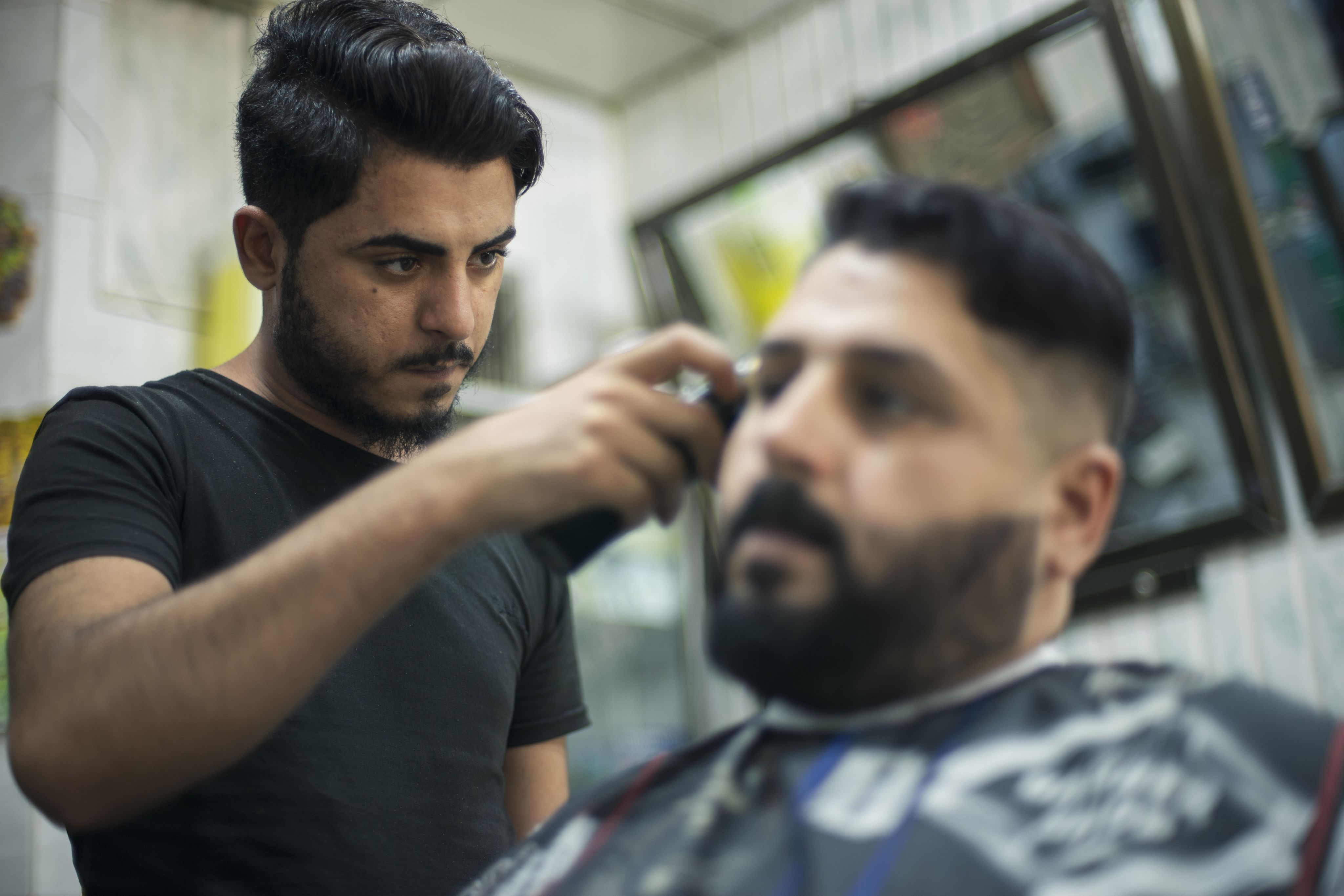How providing short-term job opportunities for families returning to Mosul creates a sense of renewed hope.
Boosting Household Income Through Cash-for-Work
September 29, 2021

Four years since its liberation from ISIL, the people of Mosul continue to work hard to build back their lives. The brutal conflict left absolute devastation, including damaged homes, schools, roads, and health facilities.

Today, over 1 million people have returned to their homes in Mosul. However, families face many challenges which prevent restoring any sense of normalcy. It includes lack of enough employment opportunities resulting in depleted savings and increased debt to cover basic daily needs.
"We were forced to flee for our lives during ISIL. I was worried about my children. With losing most of our house and belongings, I also lost my job," says Khudair Hammoud Abdullah, 49, from Mosul. He is married with eight children. "I used to collect nylon and metal scraps to resell for recycling. Unfortunately, I lost my shop when ISIL took over Mosul."
During the conflict, Khudair and his family were forced to flee to a nearby camp, where they lived for two years. Upon Mosul's liberation, Khudair and his family were determined to return, rebuild their lives, and reconnect with loved ones they had not seen for years.

For people like Khudair, who are left extremely vulnerable after the conflict, UNDP provides cash-for-work opportunities. These short-term opportunities provide temporary employment to returnees to restore public infrastructure.
"After returning home, I have been doing odd jobs to make ends meet. This was when I came across the cash-for-work opportunity," says Khudair. He used his earnings to rebuild two rooms in his home that were damaged during the liberation. "I also purchased a three-wheel motorcycle to restart my nylon and metal scraps business."

To ensure an inclusive process, 40 percent of people hired under cash-for-work are women.
For a 39-year-old mother of five, Laila Merhi Hassan, this opportunity came at the right time. Laila's husband was left physically disabled during the conflict. As the sole breadwinner for the family, she says, "I just started my new job working at a factory making children's toys and stationaries. But the first time I got a job was when I was selected for the cash–for–work job. It gave me a taste of what it means to be financially stable.

Even while she was displaced, Israa continued to bake bread and sell it to families in Tikrit. "I never stopped working. I was thinking ahead for my family. I saved my earnings so that we could use it to go back home to restart our lives."
When it was safe to come back, they returned home in 2018. "I came back to find my house severely damaged, and the shop destroyed. But this just meant I needed to work harder to provide for my family."

While on the other hand, 28-year-old Ihab Alaa Saleh used his savings to start a barbershop. "Working for those 40 days under cash-for-work gave me the confidence to finally start the barbershop," says Ihab.

Ihab has built a loyal clientele of over 25 people that visit his shop every week. "The positive response from people has been tremendous. My client base is growing thanks to word of mouth from my satisfied customers. Looking ahead, I will expand my shop to accommodate more clients and create more jobs in my community," he adds.
Khudair, Laila and Ihab were hired under cash-for-work for 40 days (about one and a half months) for replanting trees, carpentry, and wielding across rehabilitation sites in Mosul. Providing such job opportunities for families returning to Mosul creates a sense of renewed hope while boosting household incomes.
About the Project
The project was implemented by UNDP's Funding Facility for Stabilization with funding from the German Federal Ministry for Economic Cooperation and Development (BMZ), provided through KFW Development Bank.
To date, over 40,000 people have received cash-for-work job opportunities through the programme across the five liberated areas.

 Locations
Locations